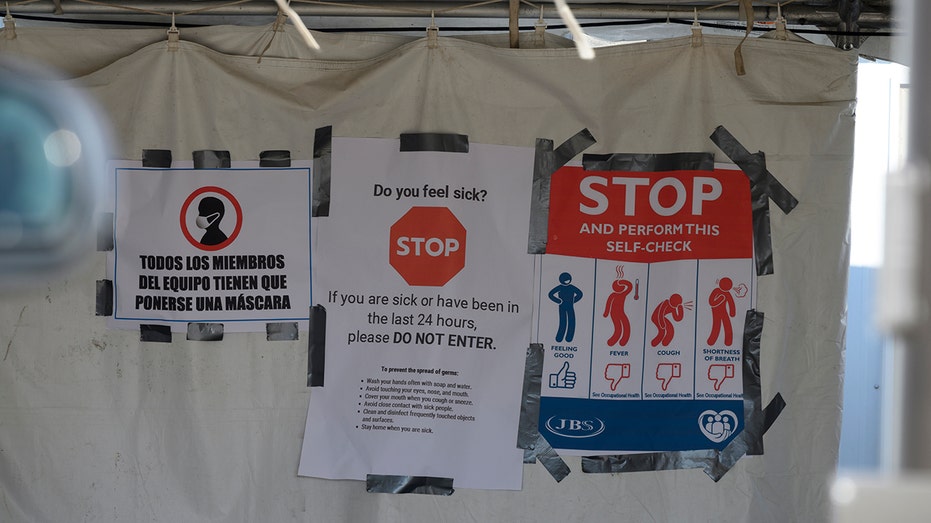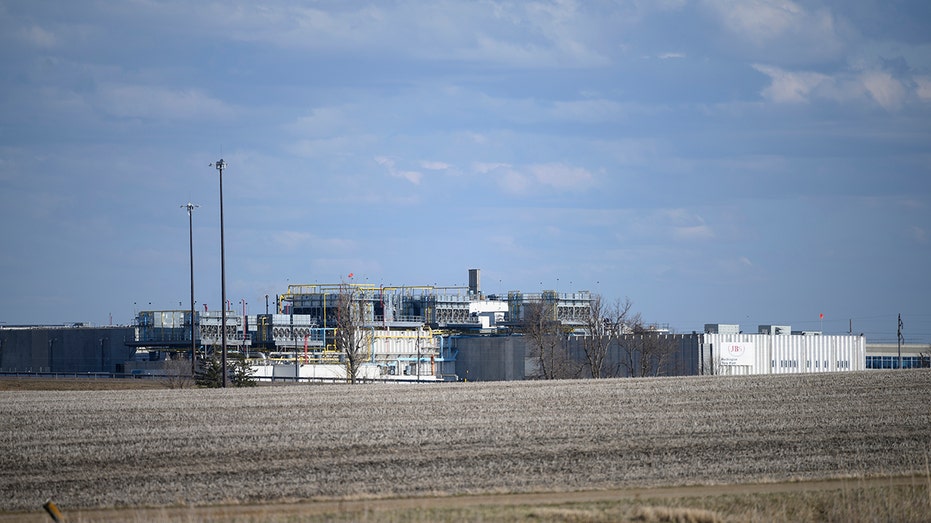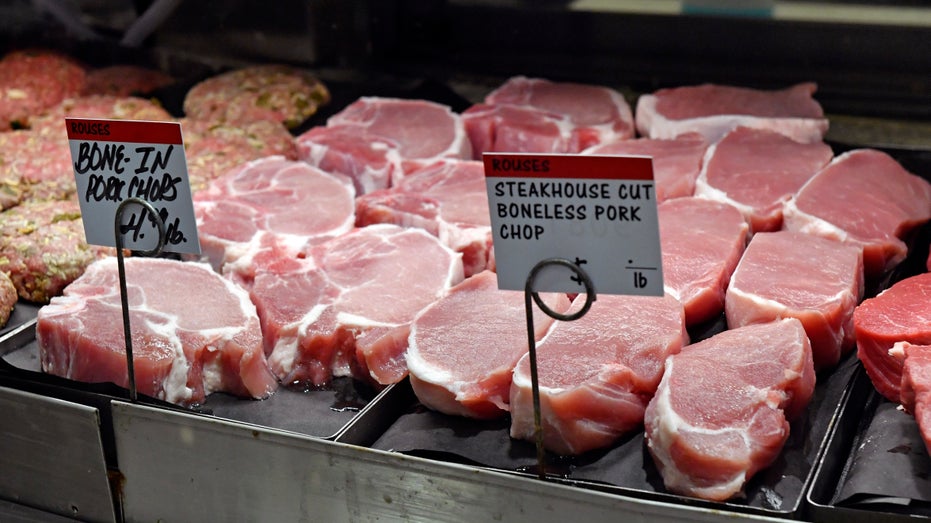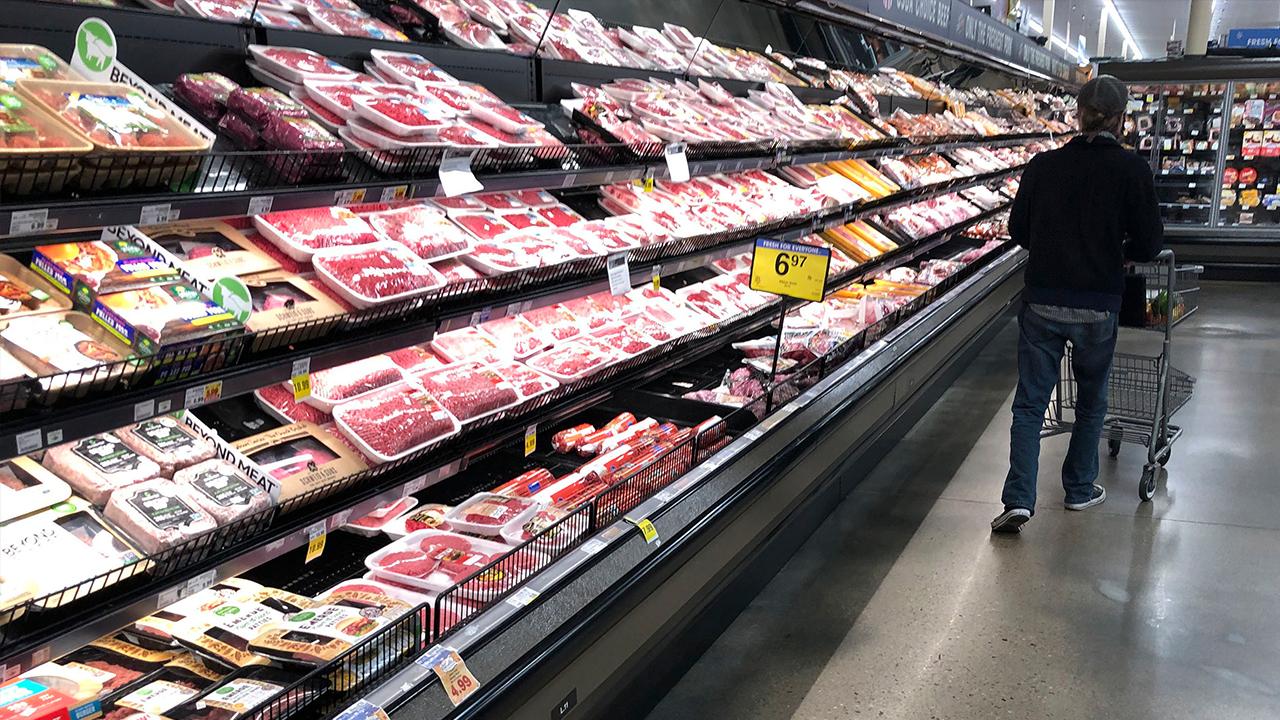Coronavirus threatens a Minnesota farm town’s economic engine
The outbreak at the plant accounts for more than half of the 1,414 COVID-19 cases in Nobles County
Get all the latest news on coronavirus and more delivered daily to your inbox. Sign up here.
WORTHINGTON, Minn.—Miguel Rivas emigrated from El Salvador to this ethnic melting pot in the middle of farm country 21 years ago, starting out at a meatpacking plant and a dairy farm, while studying computers online. He eventually opened a computer repair shop and cellphone store.
As the coronavirus hit this spring, business stayed fairly brisk, he said, until the hulking JBS USA Holdings meatpacking plant on the edge of town shut down April 20 amid a massive outbreak of Covid-19. Mr. Rivas’s business fell off by 90%.
| Ticker | Security | Last | Change | Change % |
|---|---|---|---|---|
| JBSAY | JBS | 8.66 | +0.03 | +0.35% |
“One day everybody was walking in with face masks,” said Mr. Rivas, 39 years old. “They said, ‘This is very serious. There are people that are very sick at home.’” Then they stopped coming altogether.
CORONAVIRUS CASES CAUSE THIRD JBS MEAT PACKING FACILITY TO CLOSE
For years, the JBS pork processing facility has been the economic engine that helped turn the sleepy farming community about three hours southwest of Minneapolis into a thriving multiethnic enclave. Twelve different cultures are represented here and minorities now outnumber non-Hispanic white residents. More than 40 ethnic businesses operate in the city of 13,000. Mexican and Asian grocery stores, hole-in-the-wall taco joints and margarita bars line 10th Street downtown.

COVID-19 signage at the employee entrance of JBS USA plant. For weeks, Al Oberloh and others living in this meatpacking town of 10,000 people braced themselves for what they believed was inevitable: an outbreak of the deadly COVID-19. (Aaron Lavinsky
The outbreak at the plant accounts for more than half of the 1,414 confirmed cases of Covid-19 in Nobles County, according to state records and local officials. That is the fourth-highest total of any county in the state, despite being the 44th largest county. Of the two deaths in the county, one was a JBS worker, officials said. Overall, Minnesota has reported 18,200 cases and 809 deaths.
Last week, Minnesota Gov. Tim Walz loosened the state’s stay-at-home order, allowing nonessential businesses to reopen May 18 as long as they serve no more than 50% of their capacity at any one time, though some businesses here are waiting for local cases to slow before opening further.
CORONAVIRUS POPS UP AT MORE MEAT PROCESSING FACILITIES IN ILLINOIS, MINNESOTA, KANSAS
On Wednesday, the governor said that on June 1 bars and restaurants can open for outdoor dining and businesses like hair salons can reopen with limited capacity. The move disappointed some business owners across the state, who want the reopening to move faster.
On May 6, JBS started to bring the plant back online after a two-week cleaning and revamping. City leaders are holding their breath in hopes that the plant can keep the city’s economic blood flowing despite the continuing threat of Covid-19. The plant pumps $100 million a year into the area’s economy, said Mayor Mike Kuhle.

This photo taken April 18, 2020, shows the JBS USA Pork Plant in Worthington, Minn.(Aaron Lavinsky/Star Tribune via AP)
The mayor and union officials have praised the company’s efforts to protect workers as they start to return, even if some think the plant moved too slowly at the outset of the pandemic. But the mayor says he still worries about whether the efforts will fully protect workers.
“It’s a huge gamble,” Mr. Kuhle said. “There’s a lot riding on getting this right.”
The city helped set up a mass testing for the plant’s 2,200 workers whether they had symptoms or not. About 1,700 were tested and about half were positive, Mr. Kuhle said.
CORONAVIRUS MAY FORCE HOG FARMERS TO KILL 10M PIGS BY SEPTEMBER
Bob Krebs, president of the JBS pork division, said the plant was requiring masks, taking temperatures and interviewing workers about any symptoms before the shutdown. During the shutdown, JBS installed permanent plexiglass barriers between workstations, added extra space for dining and beefed up its air-purification systems among other steps, he said. He said the plant is working with state and local officials and adjusting to new information about the virus and stands ready to make more changes if needed.
Mr. Krebs said about 70% of workers are now back at the plant, and that it is now processing 14,000 hogs a day, down from 21,000 normally. Hog farmers are still being forced to kill some animals that there is no longer room for in their barns.
Many workers are apprehensive about going back to work.

Fresh pork chops sit in a case for sale as shoppers look for items on their grocery lists amid the new coronavirus pandemic, Friday, May 8, 2020, at Rouses in Arlington Marketplace in Baton Rouge, La. (Hilary Scheinuk/The Advocate via AP)
Chansouk Duangapai said his parents, both 61, have worked at the plant for about 25 years since the family arrived in Worthington as refugees from Laos. His father got sick in March and his mother got sick soon after. Both tested positive for Covid-19 and grew quite ill but didn’t require hospitalization.
His mother was particularly worried about going back, but got word over the weekend that she was high risk because of other medical conditions and didn’t need to return until June 1. His father went back to work on Monday.
GET FOX BUSINESS ON THE GO BY CLICKING HERE
“I think he wanted to get out of the house,” Mr. Duangapai said. “I’m a little worried about him. I don’t know if you can catch Covid-19 again.”
Other business owners in town are having their own struggles.
Kerry Cuate, who owns a Mexican bakery called Panaderia Mi Tierra with her husband, Juan, said the business was off only a bit until the JBS shutdown and now it is down about 25%. She is optimistic that once restrictions loosen up more things will get back to normal.
“They’ll be back,” she said of her regulars. “Why wouldn’t they?”
Mr. Rivas said he lost his parents as a boy and came to the U.S. as a teenager after being threatened by gangs in El Salvador. He said his wife worries about him working at the shop, which now sells cellphones and piñatas made by his son. He put up a large plastic sheet in front of his counter and does his best to stay safe, but he isn’t worried about his business.
“I am somebody who grew up with nothing, so I’m always ready,” he said. “And that’s how people should be, because you never know what’s going to happen.”
CLICK HERE TO READ MORE ON FOX BUSINESS
